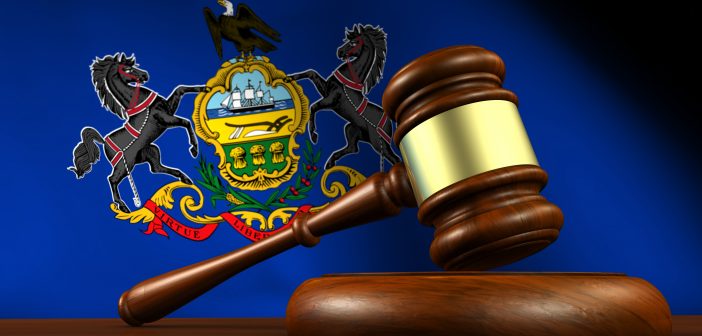Pennsylvania Rumblings
Why Can’t They Trust the Courts?

Legal columnist Tom Fricke
by Tom Fricke
For the casino industry, an analog to RePlay Magazine is a periodical called CDC Gaming Reports. In its June 12 issue, it announced that the Chairman of the Pennsylvania Senate Community, Development and Recreational Development Committee, Mario Scavello, is bothered by payouts of games of skill. The CDC reports that Senator Scavello is considering legislation that would bar prize payouts except when operated in a casino.
I wish that the policy makers in the Keystone State would try to understand the existing law that applies to such activity. Last October, when the Pennsylvania General Assembly enacted a notable expansion of licensed gambling, there were those who speculated that the new law prohibited amusement redemption games throughout the Commonwealth by the new casino law’s following redefinition of slot machines:
“Skill slot machine means a slot machine in which the skill of the player, rather than the elements of chance, is the predominant factor in affecting the outcome of the game.”
The speculators are wrong. The re-definition applies only to activities on the premises of licensed casinos. The 2017 law that expanded licensed gambling in Pennsylvania expressly refrained from amending the Commonwealth’s general prohibition of gambling under its criminal code.
Look at what the statute –– that wasn’t changed –– says:
“A person is guilty of a misdemeanor of the first degree if he:
(1) ••• makes, ••• maintains, ••• or offers for sale, ••• any punch board, drawing card, slot machine or any device to be used for gambling purposes, except playing cards;
(2) allows persons to ••• assemble for the purpose of unlawful gambling at any place under his control;
(3) ••• invites any person to visit any unlawful gambling place for the purpose of gambling; or
(4) being the owner, ••• or occupant of any premises, knowingly permits the same ••• to be used for the purpose of unlawful gambling.”
(Note: Scriveners of laws love their synonyms. I’ve taken them out so you could read the statute, but in doing that I haven’t changed the meaning. Don’t worry about the Commonwealth’s prohibition of “simulated gambling devices.” It applies only when the machine “implements the predetermination of sweepstakes cash or cash-equivalent prizes or otherwise connects the sweepstakes player or participant with the cash or cash-equivalent prize.” You don’t have to worry about that if skill predominates in winner determination.)
You can see that the Pennsylvania criminal law leaves the definition of gambling up to the courts. Pennsylvania has a rich jurisprudence about what is prohibited as a gambling crime. The principle that if skill predominates in winner determination the activity and its implements are not prohibited as gambling. Look at this:
“The elements of a violation of the statute are as follows: consideration, a result determined by chance rather than skill, and a reward. Commonwealth v. Two Electronic Poker Game Machines, 502 Pa. 186, 465 A.2d 973, 977 (Pa. Super., 1983). If these three elements concur, the machine will be considered “so intrinsically connected with gambling” as to constitute “per se” a gambling device prohibited under 18 Pa.C.S. §5513(a).”
“As to the chance element of the prohibition, however, where skill and chance both influence the prize award, the influence of chance must be predominant for there to be a violation of the statute. Two Electronic Poker Game Machines, citing Nu-Ken Novelty, Inc. v. Heller, 220 Pa. Super. 431, 288 A.2d 919 (Pa. Super., 1972) and In re Wigton, 151 Pa. Super. 337, 30 A.2d 352 (1943).”
Better yet:
“Showing of a large element of chance, without more, is not sufficient.” Commonwealth v. Two Electronic Poker Game Machines, 502 Pa. 186, 194; 465 A. 2d 973, 977 (1983).
That’s clear enough for me. But there’s more. The Pennsylvania Supreme Court established as settled law, long ago, that if a video game or even a video poker game, lacks one of the three classic gambling elements, its use is allowed. It doesn’t matter what the video artwork looks like.
The Pennsylvania Supreme Court went so far as to establish that if winner determination is by chance, but the player can never receive more value than he paid to play, it isn’t gambling and isn’t prohibited. Is it okay to take the Pennsylvania Supreme Court at its word? If so, here’s the word:
“Gambling has been defined as the staking of money or any other thing of value on an uncertain event. It involves chance and a hope of gaining something beyond the amount played. Gambling has been called a disease of barbarians, superficially civilized. In a legal frame of reference it is characterized in somewhat the same way, a play for value against an uncertain event in the hope of gaining something of value. ••• Thus a gambling device is that which is utilized to facilitate the play for excess value. It is this hope of gaining something beyond the amount played which motivates people to gamble and creates the dangers associated with gambling. The machines as operated in the instant case do not present the traditional dangers associated with gambling. The players can never ‘break the house’ because the games are carefully controlled so that the player never wins an amount of tokens equal to or greater than the amount he has played. Thus, the motivation for playing these machines is not ‘reward’ but entertainment, as the player can never ‘win’ anything other than a prize worth less than the amount he has played. The redeeming of tokens for prizes is ancillary to the machine’s entertainment purpose, and not a reward as contemplated by the law of this Commonwealth.” Commonwealth v. Irwin, 1993.
Don’t forget, the machines before the Court in this case were redemption games of chance.
Now let’s look at the call for state-level regulation in the June 12 issue of CDC Gaming Reports. When you read it on your computer you can view a video of the play of one type of game causing the policy makers’ concern. You see video artwork reminiscent of, well, something you would see in a casino. Then you see how you can win and if you’re good, beat the machine. It’s a straightforward task of touch the dots in a matrix in the same order that they illuminate, like the game Simon Says. Viewing it, your immediate impression is, “Hell, I could do that.”
Skill games that grownups like to play for prizes have done well in Pennsylvania courts. In 2014, a stop-the-reel game on a five-card-draw theme (where the player had no control over and couldn’t stop two of the reels) found favor with the Common Pleas Court of a bedroom county next to Philalelphia. On appeal, the Pennsylvania Superior Court found that the lower, Common Pleas court had decided the facts correctly.
The game shown in the CDC Gaming Reports item found favor with the Common Pleas court of another Pennsylvania county in the same year. And all the opinion piece published in CDC Gaming Reports had to say about that was, “Oh well, the courts were wrong.”
In March of this year, the Common Pleas Court in Scranton made short work of someone’s attempt to foist on it as skill-predominant a single-play-preview game that allowed you to opt for a 1-cent “win” if you didn’t like the outcome. From this I believe that you can not gainsay that the courts know what they are doing.
The heart of the thesis is plain to see from the concerns set out in the June 12 opinion piece:
• “they aren’t subject to the state’s 34 percent slots tax.”
• “…Businesses have declined selling [Pennsylvania lottery] monitor games (like keno) because they have “skill” games.”
What’s going on in Pennsylvania may be the idea that by law you can create a monopoly (in our case, skill games for prizes) just to raise tax revenues from the very monopoly you create. That’s bad public policy. If you are conscientious and comply with the law, and the courts agree with you based on longstanding, settled law and then if you’re too successful, they’ll change the law on you. Perhaps some policy makers believe that we can’t trust the courts. I wish that they would just look at the existing law that the courts have made.
Attorney Tom Fricke specializes in the law of redemption. He has served the amusement game trade for more than three decades in various roles including in-house counsel for a national FEC chain, trial and transactional attorney for many businesses and as an expert witness on the law of redemption. Tom has also penned hundreds of articles on the subject of redemption regulation, legislation and compliance.
Redemption and the Law is commentary. It is not legal advice. It is intended only to provide useful information on the subject matter covered with the understanding that neither the publisher nor the author is engaged in rendering legal services. If legal advice or other professional or expert assistance is required, the services of a competent professional should be sought. The views expressed in Redemption and the Law are solely those of the author and not the publisher. Author Tom Fricke claims an exclusive trademark in the phrase Redemption and the Law. He can be reached by email at [email protected]; phone 314/322-9526. © Copyright, Thomas F. Fricke 2016, St. Louis, Missouri, USA. All rights reserved worldwide.




